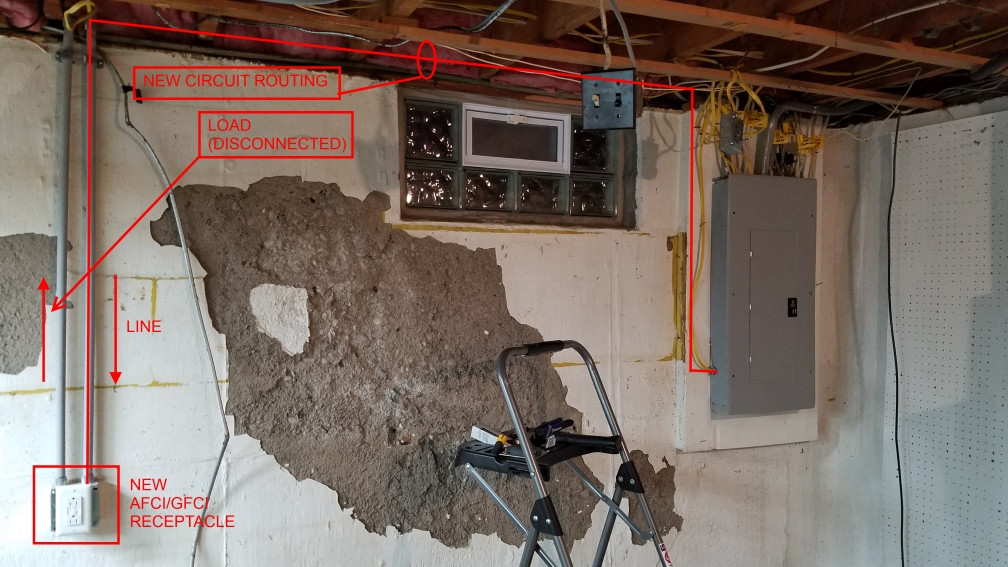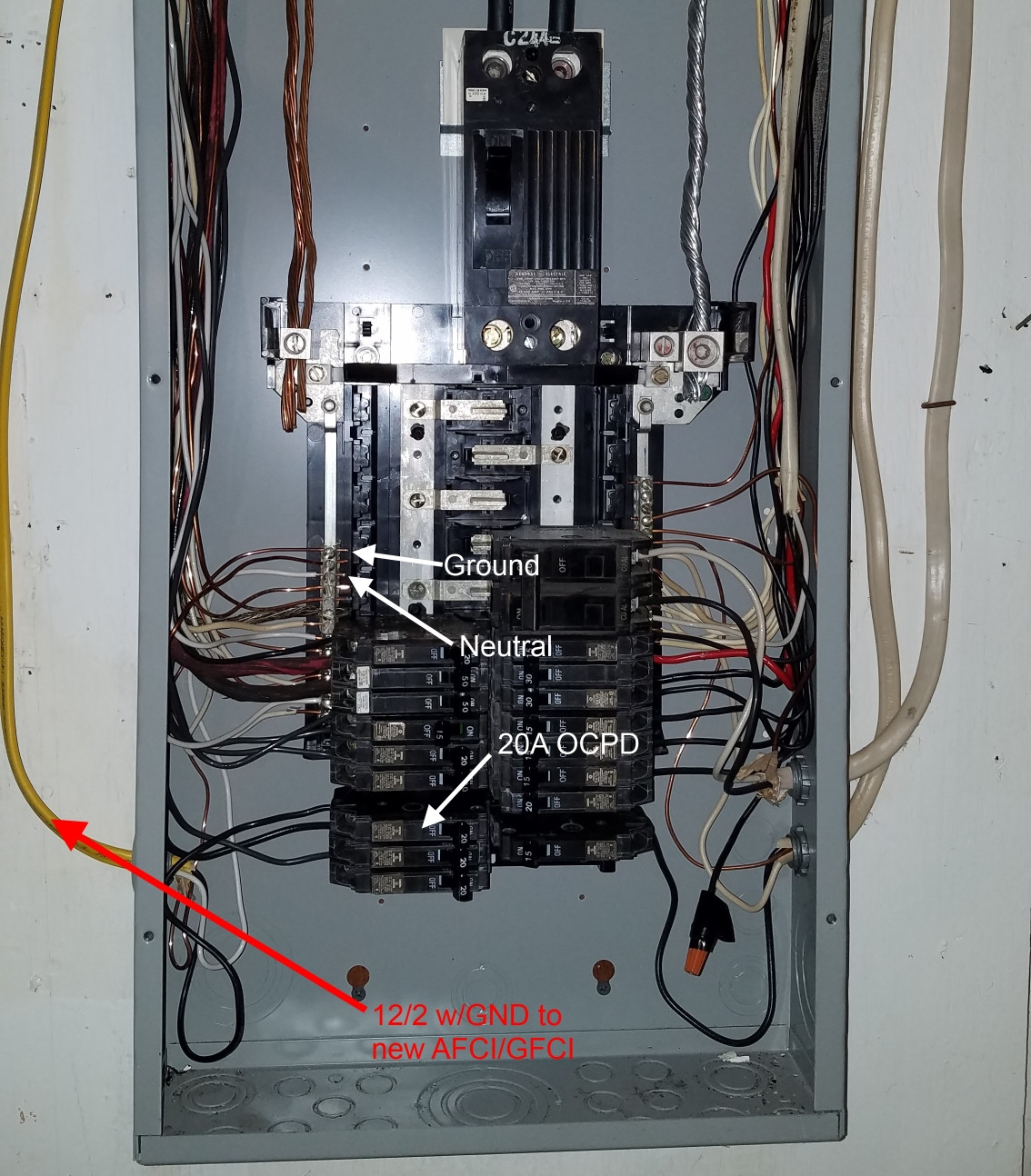I moved into a house last year that has some 2-wire receptacles, and some 3-wire receptacles. I have been adding GFCIs and AFCIs where required. I recently removed the conductors and old receptacles from a circuit and replaced them with a 12 gauge two wire with ground. The first receptacle from the breaker panel is a GFCI/AFCI. I have one receptacle wired from the load side of the GFCI/AFCI receptacle, and then one wired from the 2nd receptacle. I have been noticing that the GFCI/AFCI will be tripped when I check on it. The GFCI trip light is on when it trips. I'll reset it, go to bed, and it'll be tripped the next day. There are no loads connected to this circuit.
The other day I turned on the lights in the basement (florescent) and as soon as they turned on, the GFCI trips. It only happened once and I haven't been able to repeat it.
To troubleshoot, I have tried the following:
Replaced GFCI/AFCI
Replaced all of the wire
Disconnected the wire on the load side of the receptacle
So, here's the summary of problem:
Changing receptacles 2-wire to 3-wire
Wiring and receptacles on this circuit are new
Using existing circuit breaker
GFCI trips on GFCI/AFCI receptacle with no loads on it
I have replaced the GFCI/AFCI and still have the same problem
Wiring and work was checked
Any ideas what could be the problem?
Pictures:


